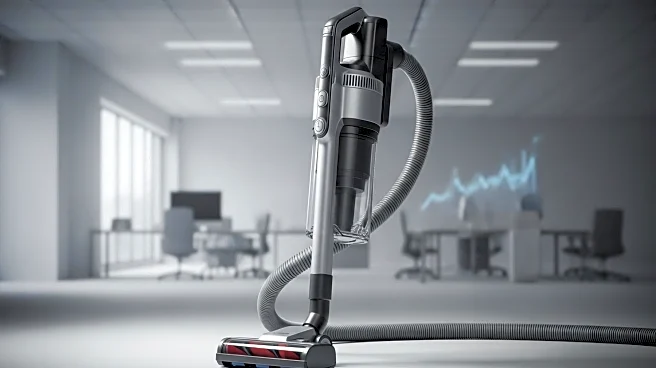What's Happening?
Dyson, the home appliances company founded by Sir James Dyson, reported a significant drop in profits, nearly halving during a challenging year. The company, which relocated its headquarters to Singapore in 2019, sold 20 million products but faced a revenue decline of over £500 million, bringing total revenues to £6.5 billion. The profit drop was attributed to sluggish economic growth, reduced consumer confidence, and the impact of a strong pound against Asian currencies. Additionally, Dyson underwent a global reorganization, resulting in approximately 1,000 job cuts in the UK. Despite these challenges, Dyson remains committed to innovation, with plans to launch new products in 2025, including advancements in floor-cleaning, robotic, and purification technologies.
Why It's Important?
The financial downturn at Dyson highlights the broader economic challenges faced by global companies, particularly those with significant operations in Asia. The company's decision to cut jobs and reduce dividends reflects the need for strategic adjustments in response to market conditions. For the U.S. market, Dyson's focus on innovation and new product launches could influence consumer trends in home technology and lifestyle products. The company's ability to navigate these challenges while maintaining its commitment to research and development in the UK underscores the importance of balancing global operations with local expertise.
What's Next?
Dyson plans to introduce significant innovations in 2025, which may include new technologies in floor-cleaning, robotics, and air purification. These developments could potentially revitalize the company's market position and drive future growth. Stakeholders will be watching closely to see how Dyson's strategic initiatives impact its financial performance and market share in the coming years.









